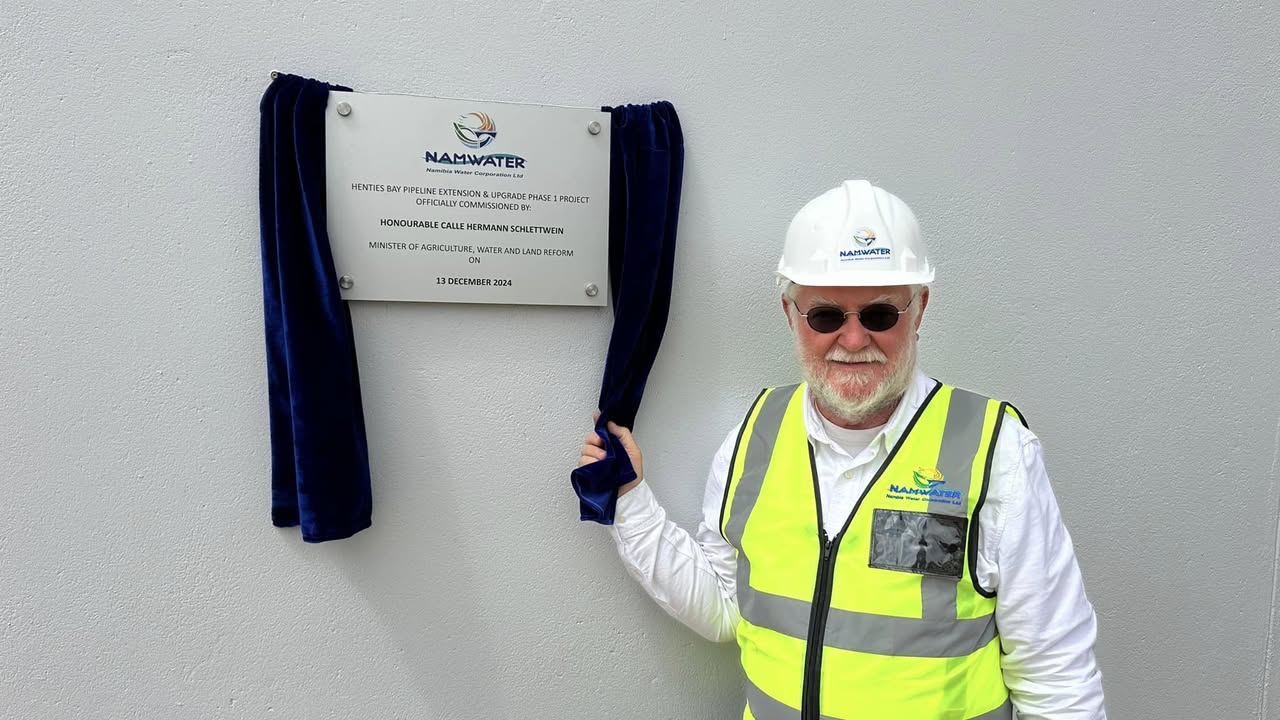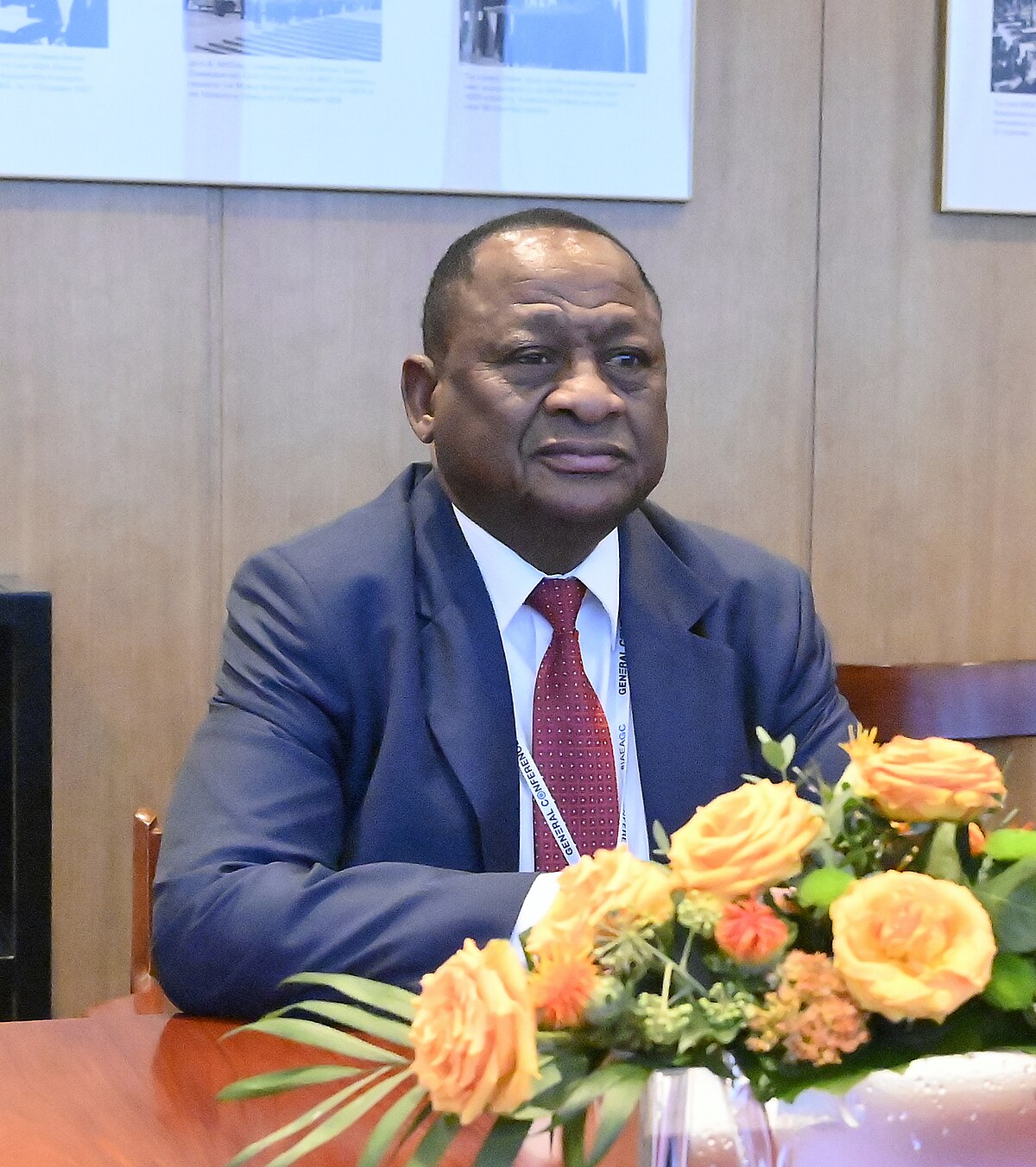A TOP United Nations official has urged Namibia to play a greater role in combating the effects of HIV-AIDS and offer improved access to services for the rapidly growing number of orphans and vulnerable women.
James Morris, UN Secretary General’s special envoy for humanitarian needs in southern Africa, said the Government needs to step up efforts to deal with the “humanitarian crisis” in the country. “I am particularly concerned about the plight of orphans and women, and their inability to access critical necessities such as food, clean water, education, and health care,” he said.Morris, who is accompanied by mission members from eight UN agencies, is reviewing how the international community can more effectively assist Namibia in battling HIV-AIDS, food security and the drain on human resources.”An expedited implementation of commitments is required if Namibia is to get through this crisis without losing an entire generation,” said Morris.Namibia ranks among the top five countries in the world that are most affected by HIV-AIDS.The virus has become the country’s leading cause of mortality with nearly a quarter of a million people infected.Average life expectancy will decline to around 40 years of age by the end of 2005 – 25 per cent lower than a situation without HIV.There are already more than 120 000 orphans and vulnerable children in Namibia and the number would reach 250 000 by the year 2020.Morris met Prime Minister Theo-Ben Gurirab yesterday morning where he raised the concerns.Gurirab thanked the UN for its continued assistance and undertook to address the concerns.The World Food Programme, Unicef and the Namibian Government recently put together a joint appeal of US$5,8 million to help over 600 000 orphans and other vulnerable children and women suffering from the combined effects of erratic weather, severe poverty and worsening HIV-AIDS rates.However, funding has been slow and this has had a serious effect on the UN’s ability to adequately support the most vulnerable groups.”The Government also needs to call upon all sectors, including the corporate world, non-governmental organisations and civil society, to join forces to combat this virus.Everyone shares a responsibility in ensuring the nation’s children have a future,” said Morris.Morris arrived in Namibia on Sunday.He has already visited Malawi, Mozambique and Swaziland as part of his third mission to southern Africa.”I am particularly concerned about the plight of orphans and women, and their inability to access critical necessities such as food, clean water, education, and health care,” he said.Morris, who is accompanied by mission members from eight UN agencies, is reviewing how the international community can more effectively assist Namibia in battling HIV-AIDS, food security and the drain on human resources.”An expedited implementation of commitments is required if Namibia is to get through this crisis without losing an entire generation,” said Morris.Namibia ranks among the top five countries in the world that are most affected by HIV-AIDS.The virus has become the country’s leading cause of mortality with nearly a quarter of a million people infected.Average life expectancy will decline to around 40 years of age by the end of 2005 – 25 per cent lower than a situation without HIV.There are already more than 120 000 orphans and vulnerable children in Namibia and the number would reach 250 000 by the year 2020.Morris met Prime Minister Theo-Ben Gurirab yesterday morning where he raised the concerns.Gurirab thanked the UN for its continued assistance and undertook to address the concerns.The World Food Programme, Unicef and the Namibian Government recently put together a joint appeal of US$5,8 million to help over 600 000 orphans and other vulnerable children and women suffering from the combined effects of erratic weather, severe poverty and worsening HIV-AIDS rates.However, funding has been slow and this has had a serious effect on the UN’s ability to adequately support the most vulnerable groups.”The Government also needs to call upon all sectors, including the corporate world, non-governmental organisations and civil society, to join forces to combat this virus.Everyone shares a responsibility in ensuring the nation’s children have a future,” said Morris.Morris arrived in Namibia on Sunday.He has already visited Malawi, Mozambique and Swaziland as part of his third mission to southern Africa.
Stay informed with The Namibian – your source for credible journalism. Get in-depth reporting and opinions for
only N$85 a month. Invest in journalism, invest in democracy –
Subscribe Now!






